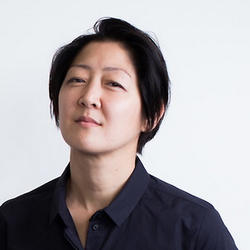Ayako Takase
on sabbatical academic year 2025–26
Ayako Takase is a designer and educator who centers their practice on creating experiences and objects that foster meaningful, emotive connections with people, culture, and audiences. Her life is a mixture of east and west—her early upbringing in Japan fostered an appreciation of minimal but rich forms and a respect for materials and nature, while her education in the US brought modern design practices, problem solving, and big pictures. Ayako worked under renowned designer Ayse Birsel before co-founding Observatory in 2001 with Cutter Hutton, a multidisciplinary design studio based in Providence, RI. Observatory relies foremost on an intuitive process that allows a natural interplay of form and function to take place in their designs. The studio helps organizations and individuals design and develop objects and experiences that have long-lasting impact, with projects ranging from furniture, tabletop products, and consumer goods to UX, UI, and strategy design. Observatory has worked with a broad range of clients including Herman Miller, Google, Procter & Gamble, and Keilhauer. Her work has earned numerous awards including the Good Design Award (G-Mark, Japan) for Lapel Pen (Tradeworks), Interior Design Magazine Best of Year Award for Doko (Keilhauer), and The Chicago Athenaeum Good Design Award for Airia Desk (Herman Miller).
Ayako teaches both undergraduate and graduate studios at RISD focusing on audience-centric, emotive, and iterative design led by such hands-on making processes as research and investigation. Her current research includes Matriarchal Design Futures, a non-capitalistic, non-hierarchical pedagogical framework centering the practices and values of caregiving and nurturing. This work has been featured in publications including Feminist Designer (MIT Press) and Attending [to] Futures (ADOCS), and presented at platforms such as the IDSA Educational Symposium and AICAD Symposium. The Matriarchal Design Futures workbooks have gained international recognition and are available in the US and Europe, as well as in open-access digital format, bringing her commitment to inclusive design methodologies and challenging current systems that shape our society, human behavior, work, and workplaces into both the classroom and broader design discourse.
